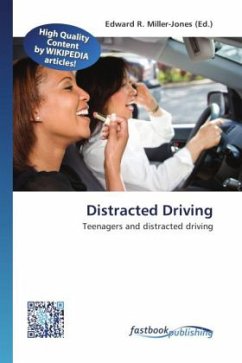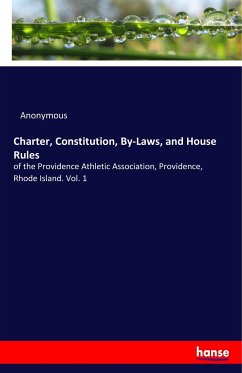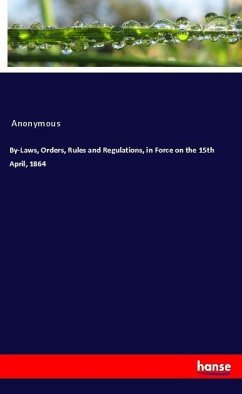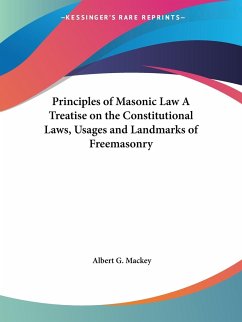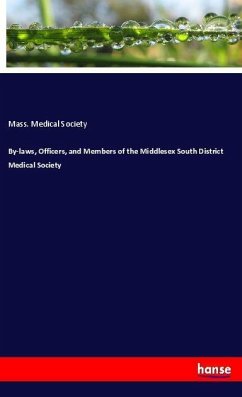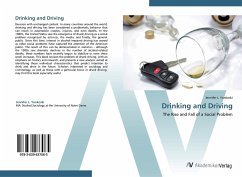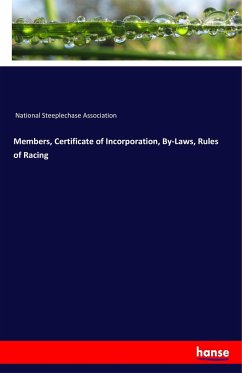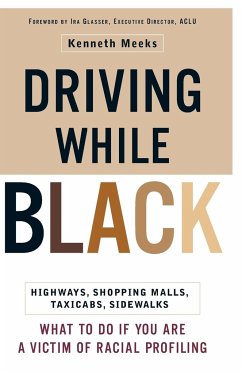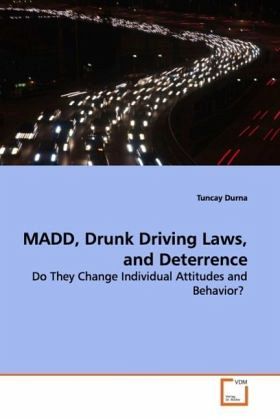
MADD, Drunk Driving Laws, and Deterrence
Do They Change Individual Attitudes and Behavior?
Versandkostenfrei!
Versandfertig in 6-10 Tagen
39,99 €
inkl. MwSt.

PAYBACK Punkte
20 °P sammeln!
With the effect of Mothers Against Drunk Driving(MADD) and some other citizen activist groups, antidrunk driving policies led to adoption of deterrentbased laws. However, research findings on the effectsof those laws are mixed and cannot explain thedecline on alcohol related fatalities. Moving beyondthe published literature on this topic, it ishypothesized that deterrent based laws not only havea simple deterrent effect through the threat ofpunishment, but also have a moralizing and educativeeffect on individual attitudes and behavior. Unlikethe previous research, this study uses both aggregat...
With the effect of Mothers Against Drunk Driving
(MADD) and some other citizen activist groups, anti
drunk driving policies led to adoption of deterrent
based laws. However, research findings on the effects
of those laws are mixed and cannot explain the
decline on alcohol related fatalities. Moving beyond
the published literature on this topic, it is
hypothesized that deterrent based laws not only have
a simple deterrent effect through the threat of
punishment, but also have a moralizing and educative
effect on individual attitudes and behavior. Unlike
the previous research, this study uses both aggregate
and individual level data together. Second, the
effects of the laws are examined over the time, not
cross-sectional. Moreover, the impact of MADD on
state adoption of drunk driving laws is empirically
evaluated for the first time. The results provided
strong evidence for effectiveness of deterrent based
laws on individual attitudes and behavior. The
findings also indicate that MADD is an important
factor in shaping drunk driving policies. The
analyses should be especially useful to activist
groups, professionals in traffic safety, and to
researchers in this area.
(MADD) and some other citizen activist groups, anti
drunk driving policies led to adoption of deterrent
based laws. However, research findings on the effects
of those laws are mixed and cannot explain the
decline on alcohol related fatalities. Moving beyond
the published literature on this topic, it is
hypothesized that deterrent based laws not only have
a simple deterrent effect through the threat of
punishment, but also have a moralizing and educative
effect on individual attitudes and behavior. Unlike
the previous research, this study uses both aggregate
and individual level data together. Second, the
effects of the laws are examined over the time, not
cross-sectional. Moreover, the impact of MADD on
state adoption of drunk driving laws is empirically
evaluated for the first time. The results provided
strong evidence for effectiveness of deterrent based
laws on individual attitudes and behavior. The
findings also indicate that MADD is an important
factor in shaping drunk driving policies. The
analyses should be especially useful to activist
groups, professionals in traffic safety, and to
researchers in this area.




